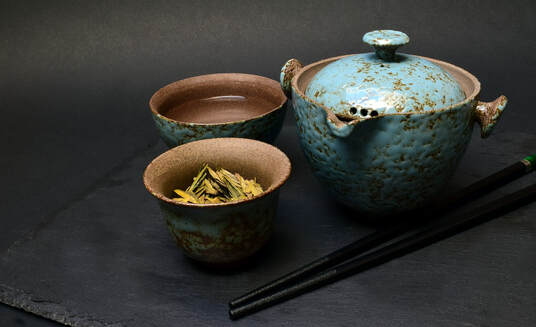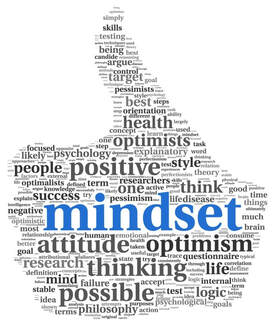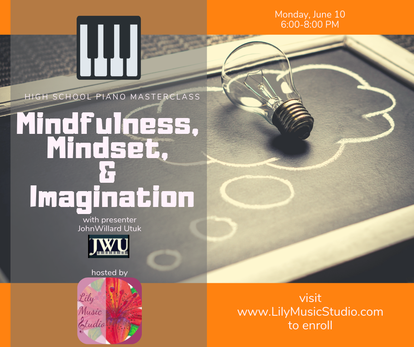|
*This short story relates to my original post about Mindfulness in piano playing. Last month, I attended a traditional Chinese Tea ceremony at the local House of Leaf & Bean organic cafe. The presenter told us he learned the ceremony from his Chinese and Asian colleagues while teaching English in Japan. Sitting among the other attendees and after tasting three cups of black tea he carefully prepared, he said, “Would anyone like to try making this tea?”
He looked around at all of us and patiently waited. Then came the lingering awkward silence. One woman blurted out nervously, “Oh! I’d probably spill it all over the place! I couldn’t do the movements as gracefully as you?!” He responded with, “Part of the experience of the ceremony is participating, not just observing…” The space of silence continued. By now, a small knot was forming in my stomach, and his eyes were scanning the faces around him once more, silently signaling someone to take him up on his suggestion. Before I could let the sensation (and silence) grow any larger, I raised my hand and said “I’ll try it!” He thanked me and said, “We’ll switch seats, and you can begin” I got up from my chair and walked behind the small table-I knew I didn’t watch every gesture he made up until that point, but I knew there was no going back. There’d obviously be lots of pouring between containers in silence... Once seated, all eyes were on me. I playfully said to myself, “I’ll do my best?!” I tentatively grabbed the gaiwan bowl of leaves and then put it down, realizing I had to put water in it. I took the container of hot water and poured it into the bowl of tea leaves, remembering he said something about “enough water to cover the leaves.” (this wasn’t the ‘put the tea bag in water’ like I was used to!). Then I let the leaves sit and the next step escaped me. Not sure what to do next, the teacher said “then you drain the water out,” I awkwardly picked up the gaiwan and saucer with one hand, trying to tilt the lid; it was tricky trying to pick it up while also tilting the lid with one hand. The teacher said, “tilt the lid, and put your thumb on top and your middle finger on the bottom..” I felt myself getting flustered, so I took a deep breath and followed his instructions. I began to feel more comfortable with the gaiwan’s special shape, lifted it, and quickly poured it in the glass with the strainer. Realizing I just performed the first infusion, all that was left was doing it two more times to make enough for everyone. As I repeated the steps, the teacher commented, “Wouldn’t you say it took him some courage to come up and try it?” “It’s like playing a Sonata, isn’t it, John? You’re not going to get all the right notes the first time…!” I smiled and thought it funny he kept referencing music while I felt like a beginner just learning to play all over again. After 3 pours, I took away the strainer, more mindful of the gestures the teacher used. With cups in front of each person, I carefully poured each some tea...focused on pouring into the cups and not spilling any! Then, the moment of truth-I gestured with my hand for everyone to try. Silently I watched everyone lift the cups to their mouths and take a sip… The woman in front of me said “This is a good cup!” Then I saw nods and smiles on everyone else’s faces. “Yes!” my mind cheered. I smiled to myself, felt a warm sensation of “I did it!” The teacher smiled and said “Very good! Would you like to try it again?” Immediately I said, “No, I’m good!” and I quickly got up and went back to my seat. While this story may seem trivial- “Why would someone be scared of making tea?!” I demonstrated to myself a bit of mindfulness and wanted to overcome my overthinking mind. I noticed my usual habit of spiraling thoughts like, “what if I do it 'wrong,' ?" "what will they think as I'm doing this," “I wasn’t paying attention enough to know exactly how he did it” and went for the experience anyway. I chose curiosity over fear. I was paying attention to what I was doing and how I was feeling. I was open to learning and present in the momentary (nerve wracking) experience of making tea. Classic Zen Story told during the Tea Ceremony: The Samurai and the Tea Master Story
0 Comments
Mindfulness, Mindset & Imagination Series Musician Mindset Matters: Tell Yourself a Story You’d Like to ReadIn different areas of our lives, we all have stories, beliefs, or limitations we tell ourselves that can sometimes prevent us from going after we want. The story, assumptions, regret we have in our minds--these can greatly affect our habits and behaviors. These thoughts can literally stop us in our tracks before we even give something a try. Time and energy is spent practicing to play our instruments and/or sing to the best of our ability, and as musicians, we’re tasked to share the results of our efforts to audiences. In those instances, there’s opportunity for praise, admiration, and amazement, but also equal opportunity to encounter fear, doubt, judgement, and anxiety. This post is first in a series related to an upcoming Masterclass/Workshop for local high school pianists, in collaboration with Lily Music Studio. I’ll be talking about issues many musicians face, like performance anxiety, ways to practice better, and will offer feedback to 4 performers on their pieces. With open discussion, a unique composition activity, and featured local food, this experience aims to be more interactive than the traditional masterclass, allowing for all attendees to participate. If this sounds exciting to you, click here to enroll & join us on June 10th, 2019! Fear of the Unknown: Mindset Matters Meeting new people, taking a test, learning to play piano, starting a difficult project, public speaking, performing for an audience, playing for an audition…situations with an unknown result usually make a person nervous. Can you remember the last time you tried something new? A bigger question is: What did you think to yourself before you tried it? Your Mindset is a set of beliefs which influence how you think of, interpret, and respond to something in a given context. Your attitude, frame of mind, inclination, mental outlook, and perspective revolve around a certain way of seeing things. You attitude to new experiences can change over time, depending on your own past experiences and feelings around an event. In Performance Success: Performing your Best Under Pressure, Dr. Don Green describes “Mental Outlook” as: “What you think is what you get. What you project for yourself has everything to do with how things will ultimately unfold. Your mental outlook is your mind-set leading up to and during performances. It’s your current belief about your talent and abilities, how you talk to yourself while performing--especially when things are not going well--and how you expect your performance to turn out” (Green 46). Carol Dweck, psychologist and author of the book, Mindset: The New Psychology of Success, says, “Mindsets are beliefs—beliefs about yourself and your most basic qualities.” She makes a distinction between fixed mindset and growth mindset. Her research concludes those with a growth mindset generally believe their basic qualities can be developed with dedicated effort, working through the difficulties of mastering those qualities, and knowing there’s always room for improvement. However, those with a fixed mindset think their traits of intelligence, and talent can’t be changed much. Blessed with talent, they may think that’s enough to succeed. Why is Mindset Important? Knowing your mindset is important since it filters how you feel. Your state of mind, personal story you make for yourself, your attitude, influence your behavior in many ways. Your mental approach to any situation makes a difference. Whether practicing for a recital, keeping cool when talking to someone you like, to studying for a test, your mental monologue impacts the outcome. If you intend to do well, you probably will. If you think it’s just not worth the time, your enthusiasm has already left. There’s always the choice in changing the stories we tell ourselves, to increase the chances for the outcome we’d prefer. What’s your Story?Usually, when someone new finds out I’m a musician/piano teacher, their initial reaction is surprise with a smile, “That’s so cool!” immediately followed by phrases like:
In lessons after a certain point, students eventually tell me: “This piece looks hard!” or “I’m not so sure how to do this...” The younger ones creatively express their uneasiness with a grunt, shaking their head, or a tongue stuck out in frustration while they play through new material.. When the idea of writing a blog came up, I had my own reservations, too. Stories I told myself:
Those I spoke with already felt that learning piano is really difficult and they could “never” do what I do. Some still feel the sting of having ‘given up’ and believe it’s too late to even consider learning again. Some students have already decided the page looks “too hard” when they haven’t even played a note. For myself, I’ve accepted I’m an overthinker (more on that next time), so this process of mentally going back and forth about writing lasted almost a week. I’m great at thinking up all possibilities, imagining the good, “bad,” and “what-if’s” scenarios. However, while I’m a great “idea machine,” what I tend to overlook is: Actually doing the things that I keep thinking and talking to myself about?! With indecision nagging at my brain I finally changed my attitude from, “A Blog? Why? Who will care?” to “I’ll try this and see what happens...” leaving the outcome open rather than expecting failure before I start. Reframe your Brain: Your Mindset about _____ MattersHow do you talk to yourself when faced with new challenges? What memories, thoughts, or feelings come up when something unexpected shows up in your life? What do you believe about yourself? Is the story you tell yourself completely true? You’re the Narrator: Change Your StoryJust like how different pianists interpret a piece, there's usually more than one way to re-examine your thoughts. To change negative self-talk or worried thinking patterns into more positive directions, here are some suggestions to encourage seeing situations differently: Change a limiting story into a positive one.Notice what you say to yourself: Is it helpful? Is there a way to rephrase it and still be realistic? When I performed in local competitions while in middle school, I used to think, ”What will the audience think of my playing? What if I make a mistake? What if the judges don’t like my playing?” As I got older, I turned the fear about them to, “I’m sharing my efforts with others. I’ve prepared and practiced, so what I need to do now is play. They just want to hear piano music. If I mess up, I just need to keep going. After all, it’s not easy to perform so I don’t need to be so hard on myself.” Now, my focus is more on what I’m doing for others (sharing the music, serving the listeners something to enjoy) rather than what others can do (or think) about me. “The studio recital is coming up in 2 weeks and I don’t think I’ll memorize the piece in time!?” “I know I want to memorize the piece, so I’ll try to aim for that. I can Google ways on how to memorize a piece quickly. What were some of things my teacher said that can help me? I’ll ask at the next lesson. Meanwhile, I can try to memorize a small section each day before the next lesson and see how far I can get. I’ll try this and see what happens At least I can play it well enough with the music! Next time, I’ll remember to prepare memorizing earlier.” The fear of “I don’t think I can do it at all” turns into “Well, I’ve made it this far playing with music. There are a few things I can do to try to memorize it...but if not, I'll try to prepare better next time.” See a challenge or new situation as an experiment.Find small ways to “test” your mindset Relearning a piece from my past, I thought, “Bringing back this Rachmaninoff piece is tough. It has so many fast 16th note passages and I think it sounds sloppy when I try play it up to tempo.” Experiment: What happens if record myself and see if it really sounds so bad? Being an outside listener, what good and improvements would I notice? I recorded my playing with my phone and listened back. It wasn’t as sloppy as I thought, but it still needed cleaning up in certain sections. I tried slower practice, isolated the trickier passages with hands separate work, then worked the piece gradually up to speed to help get it back under my fingers better. “It’s hard to meet new people. I’m afraid to introduce myself to this person and I wonder what they’ll think of me” Experiment: I’m still hesitant to talk to him/her, but let me see if I can get their attention by waving, making eye contact, or smiling at them. Next time I see them, I can try for a wave + saying “Hi!” Change your language. |
Lesson Hours
|
Connect with me on Social Media!
|






